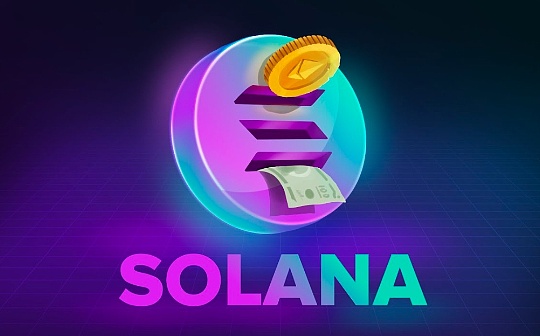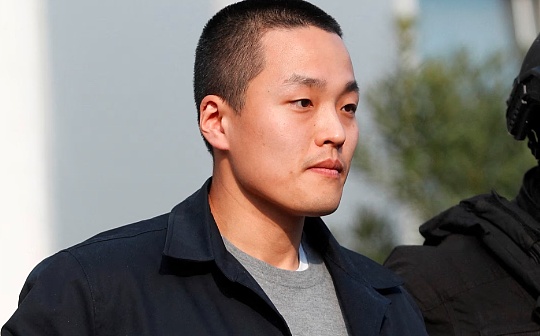Where will AI and crypto go in 2025? What six experts say

Reprinted from jinse
01/03/2025·3MAuthor: E. Johansson, L. Kelly, DL News; Compiler: Tao Zhu, Golden Finance
With artificial intelligence making headlines, experts say adding cryptocurrencies to the mix will accelerate the trend.
The popular artificial intelligence-related cryptocurrency surged 160% and will be worth nearly $55 billion by 2024. Meanwhile, investors have poured hundreds of millions of dollars into projects leveraging artificial intelligence and blockchain technology.
Market watchers have reason to be bullish on this trend: Researchers estimate that this combination will add another $20 trillion to the global economy by 2030.
We asked industry experts what they expect from the intersection of artificial intelligence and cryptocurrency in 2025.
Mark Beylin, Boost VC investor
The crypto space is quickly becoming a battleground for developing open source general artificial intelligence, a trend that will only accelerate in 2025.
We will witness an increasingly tight feedback loop, with more attention, capital and talent pouring into the field to participate in the most important invention of our generation.
The adversarial cryptographic environment will be the perfect breeding ground for a new era of hardened models that are combat-tested against attack vectors designed to subvert developer intent.
Improved open source tools will only further accelerate this trend, helping anyone deploy their own bot to fight on the big stage.
While some agents will profit from their ability to leverage large protocols, other agents will simply find more efficient ways to extract value from human market participants who are unlikely to move as quickly or know as much as they do .
Even human-operated robots struggle with a new set of strategies that are not based on prior knowledge but rise to the top through an accelerated process of natural selection, where the best programs have learned how to perform better than anyone could have imagined. Learn faster.
David Gogel, Vice President of Strategy and Operations, dYdX Foundation
Artificial intelligence thrives on data, and blockchain provides a verifiable, decentralized and transparent infrastructure.
Together they enable revolutionary use cases such as AI-driven smart contracts, decentralized data markets, AI-driven trading strategies, and decentralized autonomous organizations (DAOs) that use AI-driven insights to adapt in real time .
These technologies promise systems that are not only smart and autonomous, but also inherently trustworthy.
In 2024, we saw the popularity of AI tokens on trading venues such as dYdX, with projects at the forefront of decentralized computing and AI attracting market attention.
How far this intersection has come in 2024 is shown by the success of artificial intelligence agent Terminal of Truths, which performs tasks autonomously and launches a cryptocurrency.
Looking ahead , 2025 will see further development of AI tokens and applications, driven by innovations in on-chain AI integration and AI modeling.
Patrick Friedrich, founder of onicai
2025 will be the year autonomous agents take off, and web3 will provide the infrastructure layer to coordinate and control them.
Large language models (LLMs) will become more efficient, enabling better and better models to be run on decentralized networks, edge devices, embedded systems, and user devices such as laptops and smartphones.
This will go hand-in-hand with specialized domain-specific LLMs and create a greater wave of accessibility and usefulness in more industries than we have ever seen.
Web3 tools for creating, running, and managing AI agents will give users the necessary ownership and control to transform AI from a service to a personal assistant.
This includes autonomous agents that complete tasks independently on behalf of their owners, thereby becoming a form of user extension in digital and physical spaces.
Calanthia Mei, co-founder of Masa
Meme is evolving into something more powerful with the rise of artificial intelligence agents.
These aren’t just for the big players — even teenage crypto traders are building AI-powered memes to tag their work and participate in the cultural craze.
The growing demand for artificial intelligence agents is accompanied by an urgent need for robust data infrastructure to provide high-quality, relevant data and avoid bottlenecks caused by API rate limits.
If AI agents are expected to reach $47.1 billion by 2030, then the data infrastructure layer behind them will be worth even more.
Ron Bodkin, Founder and CEO of ChainML
The recent surge in memes related to AI agents demonstrates the increasing demand for advanced AI development and huge growth potential in 2025, and our team anticipates significant developments for agent platforms.
There will almost certainly be volatility – this is cryptocurrency after all.
But this trend points to huge demand for more advanced AI agents capable of handling increasingly complex tasks and workflows, which in turn will drive further innovation across the industry.
Additionally, 2025 will see the introduction of oversight and regulation of AI, especially with Trump appointing David Sacks as his new crypto and AI czar.
What form this oversight will take remains to be seen, but it’s clear that AI will be a key focus for the new administration.
Any policies we hope to implement will seek to empower consumers without impeding industry progress. "
Yannik Schrade, CEO and Co-Founder of Arcium
The biggest obstacle historically won’t be the token – it will ignore privacy.
Without it, everything that blockchain promises—freedom, autonomy, fair economics, community-driven governance—will mean nothing.
Privacy should not be considered an add-on, feature, or completely separate application. Instead, it needs to become the foundational layer of the blockchain technology stack.
The next big technological revolution will occur at the intersection of artificial intelligence and cryptography.
However, there are two paths: one dystopian and one utopian. To build a future where artificial intelligence and human intelligence coexist harmoniously, privacy and confidentiality must be at its core.

 panewslab
panewslab
